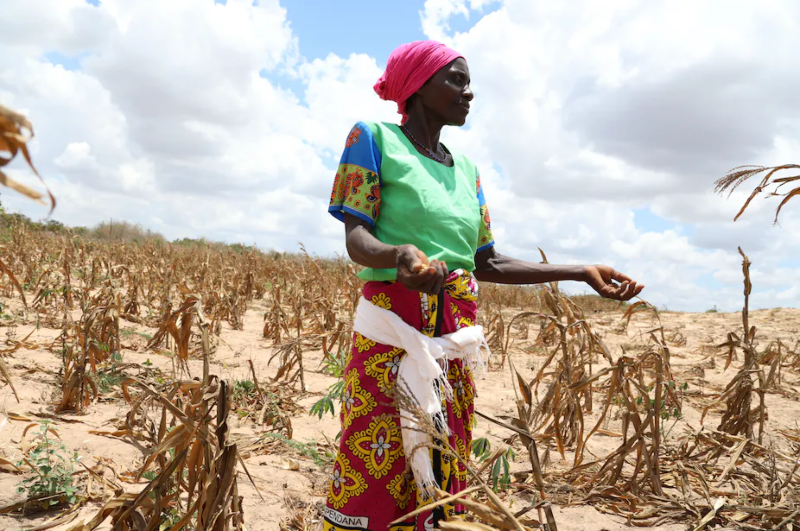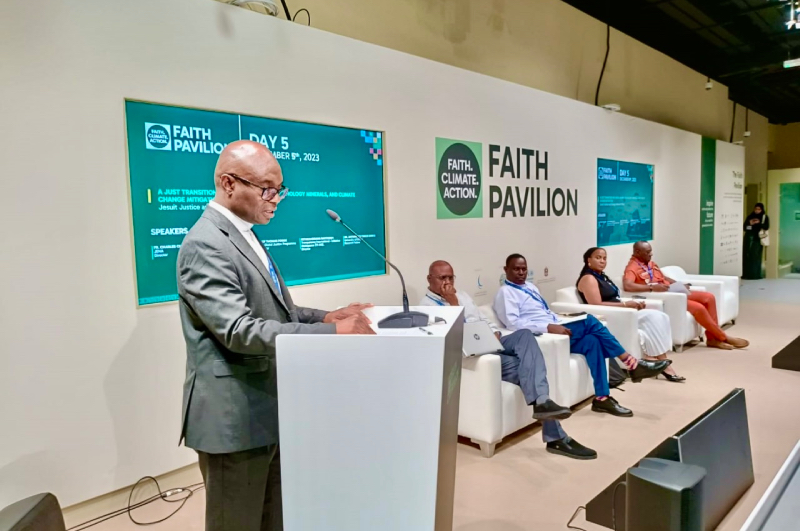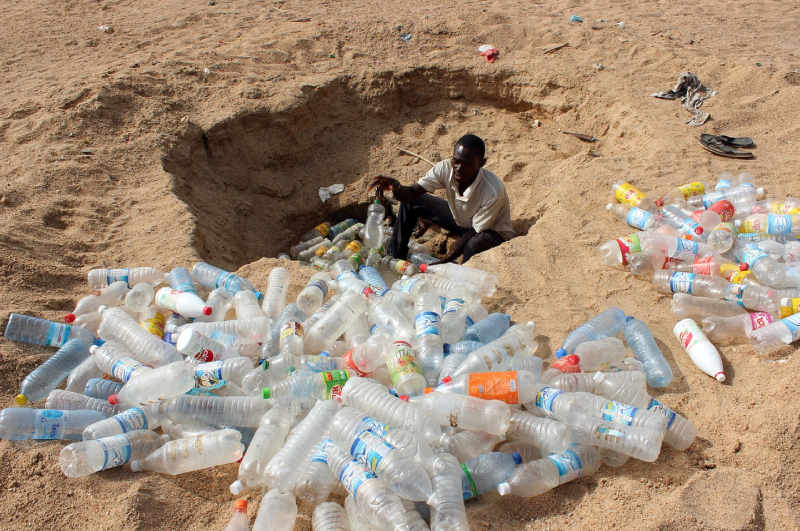

The climate crisis can no longer be denied. Its most severe effects are felt in the Global South where extreme rainfall events cause erosion and flooding, while sea level rise and coral bleaching affect archipelagos in Asia and the large ocean states.
Small-scale producers are unable to adapt their agriculture and fisheries, exacerbating food and water vulnerabilities of communities in the margins. The latest report from the Intergovernmental Panel on Climate Change (IPCC) warns that “there is a rapidly closing window of opportunity to secure a livable and sustainable future for all” (IPCC Synthesis Report Summary for Policymakers 2023, p.24). The global temperature increase, caused by human carbon contributions (we are now at 419.94 ppm), will push temperatures beyond the 1.5°C tipping point (World Meteorological Organization El Niño update, July 2023).
From 30 November to 12 December, over 140 Heads of States and 70,000 delegates are expected to gather for the 28th Conference of the Parties of the UN Framework Convention on Climate Change (UNFCCC) at Expo City in Dubai, UAE. This is a critical turning point with the conclusion of the “Global Stocktake” that comprehensively assess countries’ progress on their climate commitments. The recently released Global Stocktake Synthesis Report affirms that the world is completely off track in meeting the goals of the 2015 Paris Agreement, with current adaptation and mitigation efforts grossly underfunded.
With all its limitations, the UNFCCC COP is still an important global body where the Global South can confront the Global North for its inaction. UN Secretary-General António Guterres stated that “the era of global warming has ended; the era of global boiling has arrived. Leaders particularly G20 countries responsible for 80% of global emissions – must step up for climate action and climate justice.”
Pope Francis in his latest apostolic exhortation, Laudate Deum (LD) calls for those joining COP28 to be “strategists capable of considering the common good and the future of their children, more than the short-term interests of certain countries or businesses” (LD 60).
The Holy Father, who will attend COP28 in Dubai in December, reminds all people of faith of our shared responsibility to care for creation. “I ask everyone to accompany this pilgrimage of reconciliation with the world that is our home and to help make it more beautiful, because that commitment has to do with our personal dignity and highest values” (LD 69).
Ecojesuit as the Global Ignatian Advocacy Network on Ecology heeds this call through our shared mission on social and ecological justice. We uphold tough hope and deepened faith as valid forms of participation in global spaces. It is through faith that our commitment is strengthened in working towards an integral ecology way of living while standing alongside the most vulnerable.
We join the call of Laudate Deum for COP28 to be a “a historic event that honors and ennobles us as human beings” (LD 59) through the following action points:
1. Commit to developing the Fossil Fuel Non-proliferation Treaty, slashing emissions through a just fossil fuel phaseout, and holding top polluters accountable.;
2. Transform financial systems by establishing equitable financial flows of the Loss and Damage fund for climate vulnerable communities;
3. Implement climate action on agriculture and food security (Sharm el-Sheikh joint work on implementation of climate action on agriculture and food security or SJWA) that upholds the role of agroecology and culture-based solutions in addressing food and water vulnerabilities;
4. Deliver USD 100 billion of public and private climate finance annually by developed countries in support of the Global South, and bridge gaps to meet the goal of USD 4.3 trillion by 2030 (OECD & Climate Policy Initiative, 2022); and
5. Commit to course-correcting adaptation and mitigation deficiencies to keep the goals of the 2015 Paris Agreement alive.
In our shared mission, we seek a coherent South-North climate justice advocacy by:
1. Building collaboration on agroecology (food and water justice) by drawing together actions with youth, ecclesial networks, civil society groups, and climate justice advocates;
2. Promoting the contributions of local and Indigenous Peoples as culture-based responses to the food and water vulnerability crisis;
3. Encouraging our institutions and partners to engage with the COP process at the local, regional, global levels to strengthen a faith-based advocacy;
4. Nurturing partnerships between social and education apostolates for greater connection with and service of local people and creation;
5. Accompanying our institutions especially in the Global North in deepening their commitment to advocate for better policies on just transition, divestment, and lifestyle changes.
We acknowledge the urgency to move beyond silos. Engaging civil society, businesses, and educational institutions is our challenge in a shared climate justice advocacy, leading to policy- level interventions in our own national contexts. Transforming systems to focus on inclusivity and equity is imperative.
We humbly recognize that we have a long way to go towards genuine ecological conversion, yet our shared actions and commitment call us to deeper accompaniment and collaboration. Our faith enables a sense of vision and hope for a more just world that is greatly needed.
October 2023
Signatories
CONFERENCE PRESIDENTS
Rafael Garrido, SJ - Conferencia de Provinciales en América Latina y el Caribe
Brian Paulson, SJ - Jesuit Conference of Canada and the United States
Dalibor Renić, SJ - Jesuit Conference of European Provincials
José Minaku, SJ - Jesuit Conference of Africa and Madagascar
Tony Moreno, SJ - Jesuit Conference of Asia-Pacific
Jerome Stanislaus D’Souza SJ - Jesuit Conference of South Asia.
See more signatories {HERE}
Visit climatejustice.ecojesuit.com to read about climate stories and voices from a faith context.
Photo courtesy: Needpix.com
Related Articles
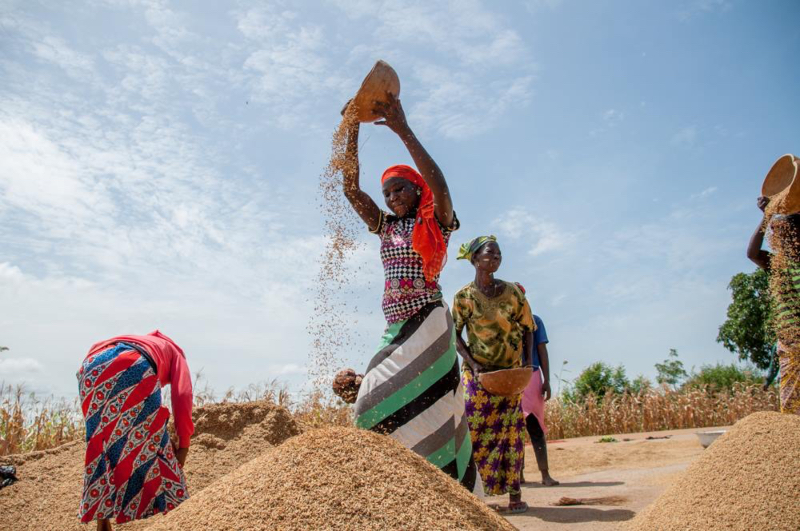
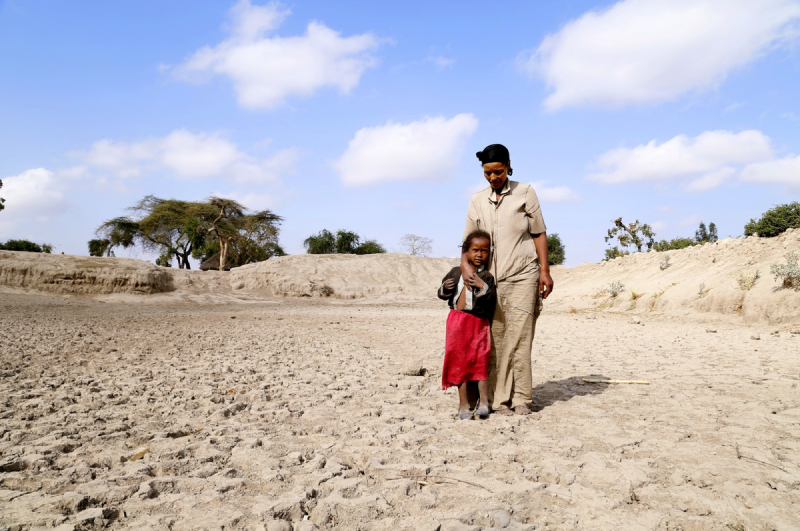
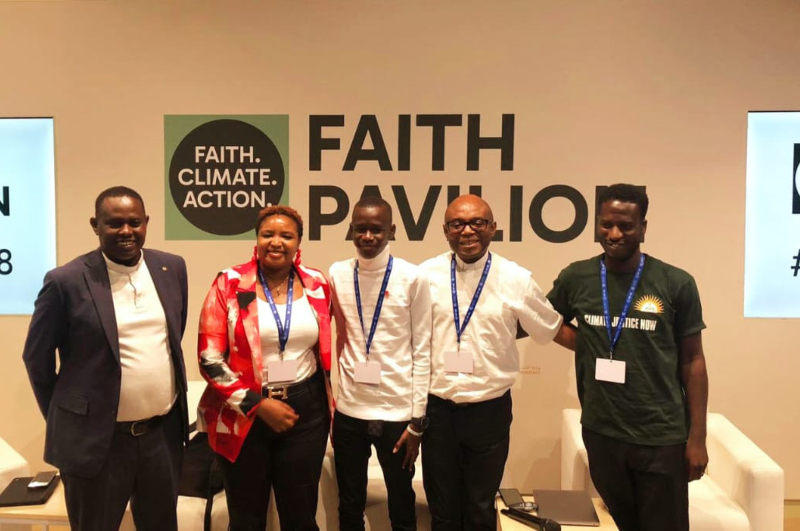
Select Payment Method
Pay by bank transfer
If you wish to make a donation by direct bank transfer please contact Fr Paul Hamill SJ treasurer@jesuits.africa. Fr Paul will get in touch with you about the best method of transfer for you and share account details with you. Donations can be one-off gifts or of any frequency; for example, you might wish to become a regular monthly donor of small amounts; that sort of reliable income can allow for very welcome forward planning in the development of the Society’s works in Africa and Madagascar.
Often it is easier to send a donation to an office within your own country and Fr Paul can advise on how that might be done. In some countries this kind of giving can also be recognised for tax relief and the necessary receipts will be issued.


